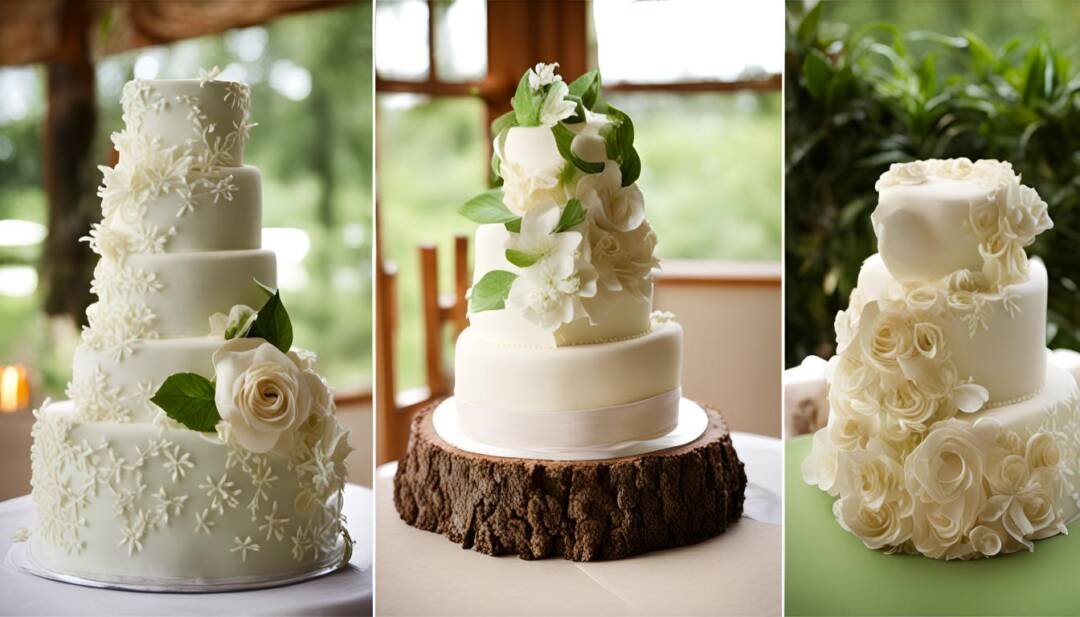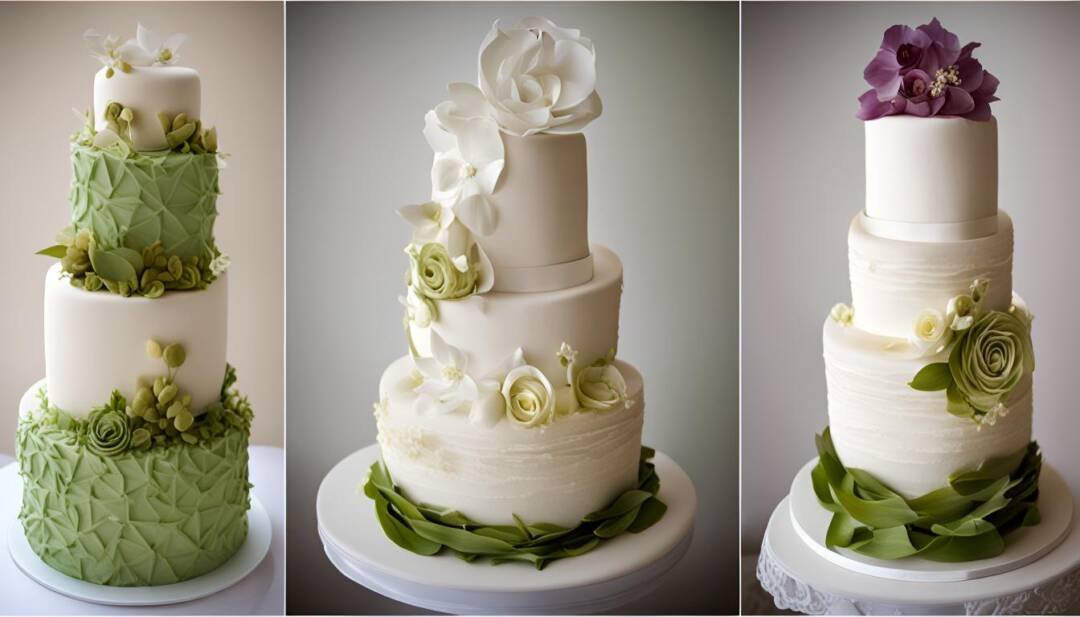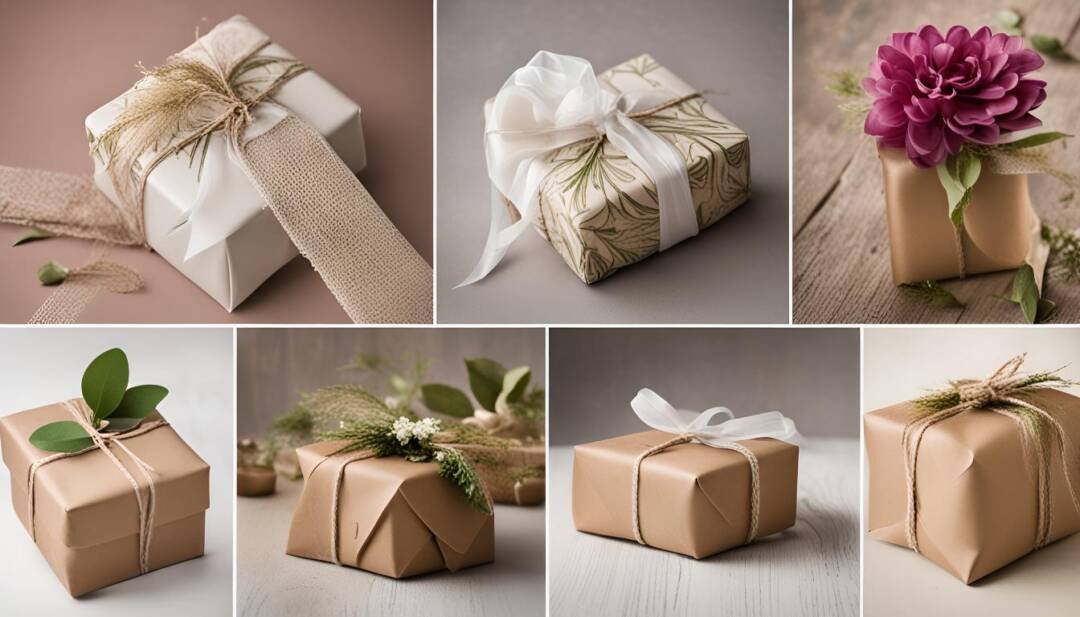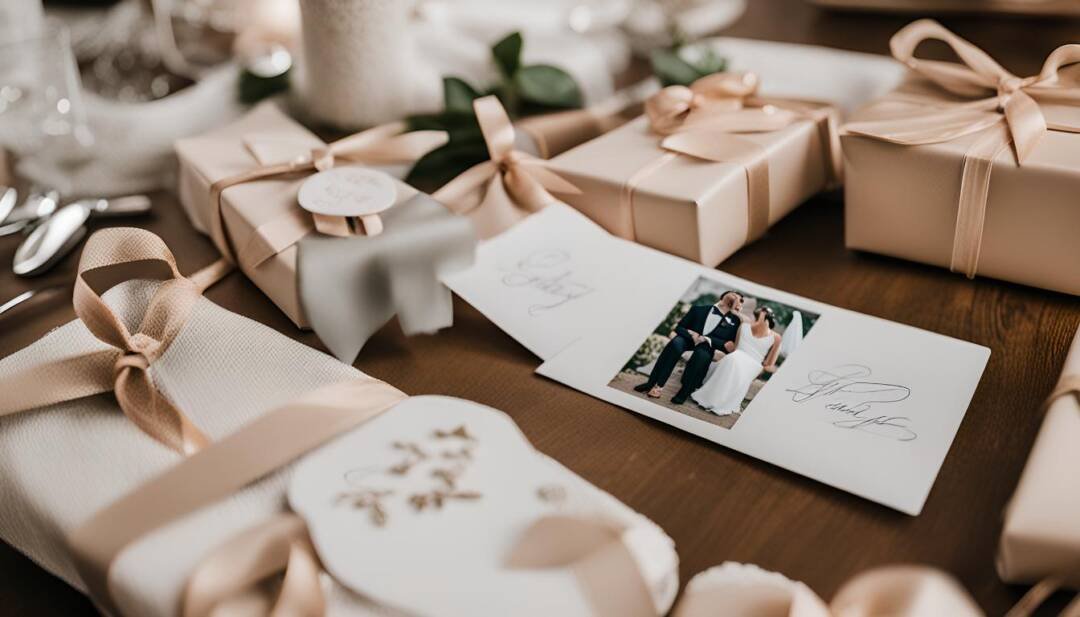Understanding the Zero-Waste Wedding Movement

1.1. Understanding the Zero-Waste Movement
The zero-waste movement is a transformative approach aimed at reducing the volume of waste generated by individuals and communities. Initially sparked by the growing awareness of environmental concerns, this movement encourages a conscious lifestyle shift. It emphasizes the principles of reusing, recycling, and repurposing existing materials to divert waste from landfills. Within the context of weddings in the UK, a zero-waste approach aligns with increasing environmental consciousness among couples, as they seek ways to minimize their ecological footprint while celebrating love.
1.2. Importance of Sustainable Celebrations
Sustainable celebrations go beyond mere trendiness; they are a conscious choice towards fostering a healthier planet. The significance of hosting a zero-waste wedding lies in its potential to inspire broader cultural shifts towards sustainability. In an era where climate change issues are pressing, opting for an eco-friendly wedding sends a powerful message of commitment to environmental stewardship. Furthermore, it nurtures a meaningful narrative for the couple, aligning their personal values with their marital journey.
1.3. Overview of Traditional Wedding Waste Problems
Conventional weddings often entail significant waste generation, attributed to a myriad of disposable products and lavish arrangements. From single-use plastics in decor to excessive food wastage, the ecological impact can be profound. Wedding photography, while capturing timeless memories, sometimes inadvertently contributes to waste through printed albums and single-use setups. In the UK, where wedding celebrations are rich in tradition and elaborate in nature, addressing these wasteful elements is crucial for a sustainable future. Shifting the focus towards low-impact practices not only reduces waste but also enhances the authenticity and creativity of the celebration.

Chapter 2. Before the Wedding: Planning for Zero Waste
2.1. Setting Sustainable Goals and Priorities
Laying a solid foundation for a zero-waste wedding begins with establishing sustainable goals. Couples should prioritize elements that align with their values and have the most significant environmental impact. Key considerations include:
- Defining Core Values: Identify what’s most important, such as minimizing carbon footprints or supporting local businesses.
- Prioritizing Waste Reduction: Focus on areas with the highest potential for waste, like catering and decor.
- Budget Assessment: Allocate funds towards sustainability initiatives, ensuring cost-effectiveness without compromising on style.
2.2. Choosing an Eco-Friendly Venue
The venue sets the tone for an eco-conscious wedding. In the UK, numerous venues are embracing sustainability:
- Renewable Energy Usage: Opt for venues that utilize solar or wind energy.
- On-Site Recycling Programs: Verify if the venue practices waste separation and recycling.
- Natural Settings: Consider outdoor or garden venues reducing the need for excessive decorations.
2.3. Reducing Waste in Invitations and Stationery
Traditional wedding invitations often produce substantial waste. Alternatives include:
- Digital Invitations: Leverage technology to send beautifully designed e-vites.
- Recycled Paper Options: For those who prefer physical invitations, choose materials made from recycled paper.
- Biodegradable Inks: Ensure printed materials utilize eco-friendly inks that reduce chemical waste.
2.4. Selecting Sustainable Wedding Vendors
Choosing vendors who share a commitment to sustainability is crucial. Research and engage with:
- Local Suppliers: Support businesses that source locally to reduce transportation emissions.
- Eco-Conscious Photographers: Ensure your wedding photography reflects your sustainability ethos by choosing professionals who use digital galleries to avoid printed waste.
- Sustainable Florists: Opt for florists who use locally-sourced, seasonal flowers without harmful pesticides.
2.5. Planning Environmentally Friendly Transportation
Transportation can significantly contribute to a wedding’s carbon footprint:
- Group Transport: Arrange shuttles or shared transport to reduce the number of vehicles.
- Eco-Friendly Vehicles: Hire electric or hybrid vehicles for a lower environmental impact.
- Encourage Public Transport: Provide information and incentives for guests traveling by train or bus, particularly beneficial for events in urban areas.
By addressing these areas proactively, couples can ensure their wedding day not only meets their vision but does so with minimal environmental impact, setting the stage for a truly unforgettable and sustainable celebration.

Chapter 3. The Wedding Day: Implementing Zero-Waste Practices
3.1. Eco-Friendly Wedding Attire and Accessories
Choosing sustainable wedding attire can significantly reduce environmental impact. With the increasing availability of eco-friendly options, couples can embrace fashion that respects the planet without sacrificing style:
- Sustainable Fabrics: Opt for dresses and suits made from organic cotton, hemp, or recycled materials.
- Vintage and Pre-Owned Attire: Consider renting or purchasing pre-loved wedding outfits, a growing trend for weddings in the UK.
- Minimalist Accessories: Select biodegradable or recycled jewelry, and choose shoes made from sustainable materials.
3.2. Sustainable Decor and Venue Setup
Decor is pivotal in transforming a venue, and with mindful choices, it can also become a beacon of sustainability:
- Reusable and Upcycled Decor: Employ natural materials like wood and fabrics that can be reused or repurposed. Thrift shops and vintage markets are excellent sources for unique pieces.
- Living Plants Over Cut Flowers: Use potted plants for centerpieces and ceremony backdrops, ensuring they can be transplanted post-ceremony.
- Lighting Choices: Integrate LED lighting or candles made from soy or beeswax to reduce energy consumption.
3.3. Organic and Locally-Sourced Catering
Zero-waste weddings emphasize the importance of mindful consumption:
- Seasonal Menus: Craft a menu around locally sourced, seasonal ingredients to reduce the carbon footprint tied to transportation.
- Plant-Based Options: Incorporate plant-based dishes, as these typically have a lower environmental impact than meat-centric options.
- Elimination of Single-Use Plastics: Ensure catering companies commit to using compostable or reusable dishware and utensils.
3.4. Green Energy Solutions for Wedding Events
Energy consumption can be substantial during a wedding, but integrating green solutions can mitigate this:
- Solar Generators: Power outdoor weddings with solar generators.
- Energy-Efficient Appliances: Confirm that the venue uses energy-efficient kitchen and lighting systems.
- Sustainable Audio-Visual Equipment: Collaborate with vendors who use eco-friendly equipment for wedding photography and videography, ensuring minimal energy usage.
3.5. Waste Management and Recycling Solutions
Effective waste management is critical for keeping the day waste-free:
- Recycling Stations: Set up clearly labeled stations for recycling and composting throughout the venue.
- Food Waste Minimization: Plan portion sizes carefully and arrange for leftovers to be donated to local charities.
- Guest Awareness: Inform guests about the zero-waste initiatives in place and encourage their participation by utilizing eco-friendly disposal methods.
Through thoughtful implementation of these practices, couples can ensure their wedding not only celebrates their union but also serves as a testament to their commitment to a sustainable future.

Chapter 4. After the Wedding: Ensuring Minimal Waste and Maximizing Impact
4.1. Handling Post-Wedding Material Responsibly
After the celebration, it’s crucial to address leftover materials to ensure they are disposed of sustainably. Actionable steps include:
- Inventory Assessment: Post-wedding, conduct an inventory of materials and categorize items for donation, recycling, or reuse.
- Wedding Attire Strategies: For items like dresses and suits, consider professional cleaning services that use non-toxic solvents, preparing them for potential resale or donation initiatives.
- Responsible Disposal: For any remaining event decor and materials not earmarked for reuse or donation, liaise with local recycling centers to ensure proper disposal.
4.2. Donating and Re-Using Wedding Items
Repurposing and donation are key to extending the lifecycle of wedding items. Consider the following:
- Florals and Foliage: Donate flowers to local hospitals or elder care facilities to bring joy to others.
- Decor and Equipment: Seek community centers or schools that may find value in props, tableware, and other decor elements.
- Dress and Accessories Donation: Many charities and organizations accept wedding attire that can be provided to brides in need.
4.3. Engagement in Carbon Offset Programs
Offsetting the environmental impact of wedding festivities can enhance your event’s sustainability profile:
- Offset Providers: Engage with reputable carbon offset organizations that support projects to reduce greenhouse gas emissions.
- Green Contributions: Consider contributions to reforestation efforts or renewable energy projects within the UK.
- Wedding Photography Considerations: Choose a wedding photography service committed to digital over printed products to lower the carbon footprint, ensuring visuals are shared online or through sustainable tech platforms.
4.4. Encouraging Guests to Continue Sustainable Practices
Empowering guests to engage in sustainable practices beyond the wedding day enriches the event’s legacy:
- Post-Wedding Communication: Share insights and tips from your zero-waste journey through thank-you cards, email newsletters, or social media updates.
- Encourage Reusability: Gift guests with reusable items like tote bags or water bottles to inspire a lasting habit of sustainability.
- Showcase Impact: Use post-event platforms to highlight successfully achieved sustainability initiatives, motivating guests to emulate these practices in their events.
By conscientiously managing the post-wedding phase, couples can not only minimize waste but also amplify the positive impact of their celebration, creating a ripple effect for lasting environmental change.

Chapter 5. Case Studies and Real-Life Zero-Waste Weddings
5.1. Inspiring Stories from Eco-Conscious Couples
In the context of increasingly eco-conscious weddings in the UK, several couples have led the way in orchestrating profoundly sustainable celebrations. Their endeavors serve as a beacon of inspiration for others contemplating a zero-waste wedding:
Emma and Jack’s Outdoor Eden: Embracing nature at its core, Emma and Jack opted for a garden wedding that leveraged the natural beauty of the outdoors, minimizing the need for excessive decor. Their wedding photography focused on capturing moments against breathtaking natural backdrops, resulting in an album rich in environmental harmony.
Sophie and Tom’s Vintage Charm: By utilizing heirloom dresses and opting for second-hand decor, Sophie and Tom underscored the power of reusability and nostalgia. Their wedding favors, beautifully crafted from recycled materials, emphasized a commitment to reducing new resource consumption.
Asha and Ben’s Community-Driven Celebration: Preferring a community center setting, Asha and Ben collaborated with local artisans and vendors. From farm-to-table catering to minimalistic floral arrangements sourced from nearby gardens, their wedding highlighted the importance of supporting local economies and reducing transportation emissions.
5.2. Lessons Learned from Successful Zero-Waste Weddings
Analyzing the experiences of these pioneering couples offers invaluable insights:
Prioritize Planning: Comprehensive pre-wedding strategizing proved essential. Couples found success by clearly identifying sustainability goals and ensuring every decision aligned with these objectives.
Embrace Digital Solutions: The digital realm played a pivotal role, especially in reducing paper waste. Invitations, RSVPs, and even aspects of wedding photography capitalized on online platforms, underscoring the effectiveness of digital solutions in minimizing physical waste.
Community Engagement: Leveraging resources within local communities not only reduced waste but also cultivated a deeper sense of connectivity and support. This practice highlighted the dual benefit of fostering sustainable practices while building community networks.
Transparency and Communication: Couples reported that transparent communication with vendors and guests facilitated better cooperation and acceptance of eco-friendly measures. Educating stakeholders about the benefits and principles of zero-waste practices cultivated a collective commitment towards a sustainable wedding celebration.
These narratives and insights demonstrate the pragmatism and beauty inherent in a zero-waste wedding approach, offering future couples the inspiration and guidance needed to embark on their sustainable journey.

Chapter 6. Conclusion: Bridging the Gap to a Waste-Free Future
6.1. The Lasting Impact of Zero-Waste Weddings
Zero-waste weddings are more than a fleeting trend; they represent a paradigm shift towards sustainable living. By choosing to minimize environmental impact on their special day, couples play a pivotal role in promoting eco-friendly practices. This movement is influencing the entire wedding industry, from florists to caterers, encouraging them to adopt green methodologies. In the UK, where traditions and personal expression merge on such occasions, implementing zero-waste strategies redefines the essence of a wedding. This approach not only conserves resources but also sets an inspiring precedent for future generations, highlighting the importance of celebrating love in ways that honor the planet.
6.2. Encouraging Broader Adoption of Sustainable Practices
As more couples embrace zero-waste weddings, a ripple effect ensues, urging others to follow suit through compelling storytelling and visual documentation. Wedding photography plays a crucial role here, sharing the sophisticated beauty of sustainable celebrations online and in print. Photographs capture the essence of eco-conscious choices, showcasing how elegance and environmental responsibility coexist.
To encourage widespread adoption, it’s essential to:
- Educate and Inspire: Utilize platforms to share tips, successes, and challenges encountered during the planning and execution of zero-waste weddings.
- Develop Support Networks: Foster communities where couples can exchange ideas and advice, ensuring a supportive environment for eco-conscious wedding planning.
- Advocate for Systemic Change: Work with wedding industry professionals to create standardized sustainable practices that become the norm rather than the exception.
By leveraging these strategies, the ethos of zero-waste weddings can transform how special moments are celebrated across various cultures and communities, ensuring that love’s legacy is respectful of the earth.


